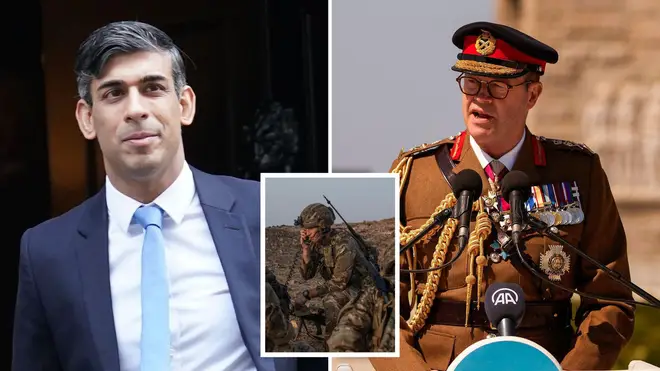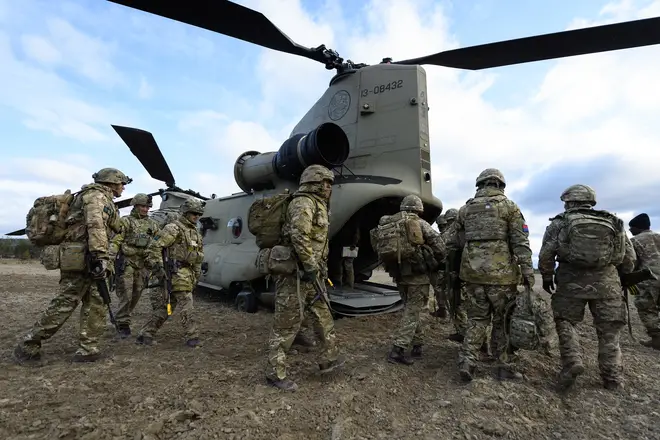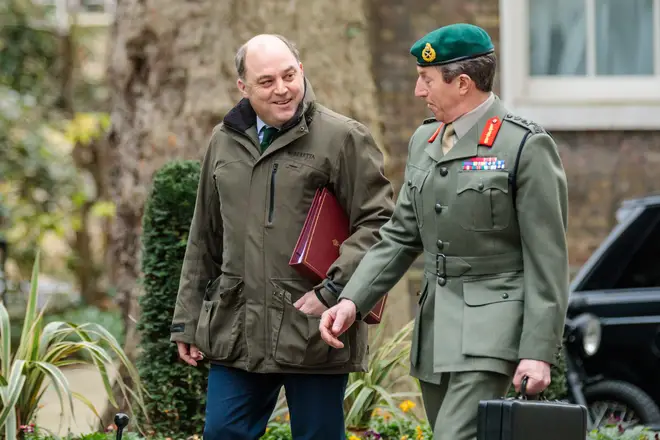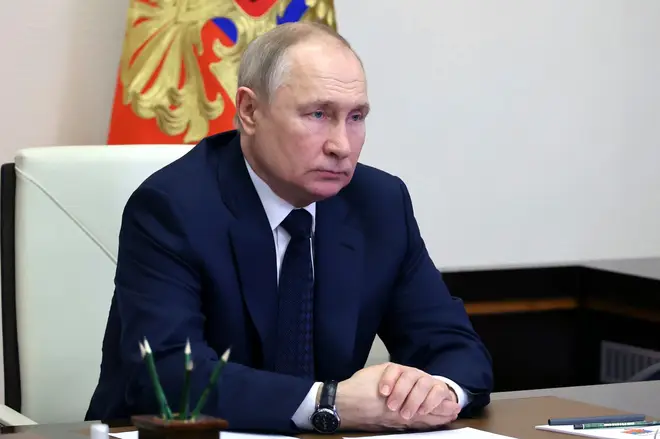
Ben Kentish 7am - 10am
24 January 2024, 16:41 | Updated: 24 January 2024, 17:24

Rishi Sunak has rebuked the head of the Army after he warned Brits may face being called up to fight in the event of a war with Russia.
General Sir Patrick Sanders warned the government on Wednesday of the need to "mobilise" the public if the UK goes to war.
Sir Patrick wants British men and women to be prepared to fight if Nato goes to war with Russia, who have gained the upper hand in its invasion of Ukraine, according to the Telegraph.
When asked about whether Mr Sunak could rule out conscription in future circumstances, his official spokesman insisted the service would remain voluntary moving forward.
“There is no suggestion of that," the spokesman said.
“The government has no intention to follow through with that.
"The British military has a proud tradition of being a voluntary force. There are no plans to change that."
He added that "hypothetical scenarios" being presented over future conflicts were "not helpful".
LBC Views: Gen Z will not accept conscription as the price of previous generations’ failures

Former defence select committee chairman Tobias Ellwood previously said that the government needed to "listen and listen carefully" to Sir Patrick.
"We've been too complacent," he said. "What's coming over the horizon should shock us. It should worry us and we are not prepared."
He said that Sir Patrick was "one of the most cerebral thinkers that we've got".
Mr Ellwood added that he was concerned hostile countries like Russia could "exploit our timidity, perhaps our reluctance to really put out fires.
"So Patrick Sanders is saying prepare for what's coming over the horizon - there is a 1939 feel to the world right now," he told Sky News.
"These authoritarian states are rearming."

It follows a warning by a senior Nato official that the West faces all-out war with Russia within 20 years.
Admiral Rob Bauer said that although Nato and member governments are readying themselves for conflict with Vladimir Putin's regime, civilians must realise that they also have a role to play.
He told reporters last week that civilians would have to be mobilised in large numbers if war broke out, and governments would have to prepare for how to manage that process.

Meanwhile, Sweden, who is preparing to enter the Nato alliance later this year, has also warned its citizens it could soon be fighting in all-out war.
The country's defence minister Carl-Oskar Bohlin recently told citizens: "The world is facing a security outlook with greater risks than at any time since the end of the Second World War.
"Are you a private individual? Have you considered whether you have time to join a voluntary defence organisation? If not: get moving!"
Mr Bohlin's words have sparked a rush to join volunteer organisations and are said to have increased sales of torches and battery-powered radios.
It comes after documents previously leaked from the German Ministry of Defence showing how Nato could respond to World War Three, with a step-by-step plan showing how the West would resist aggression launched by Putin.
The "Alliance Defence 2025" plans are not an early warning of how events will go - but a hypothetical scenario for decision-makers to consider.
The scenario looks at Russia mobilising 200,000 more men as its forces are bogged down in Ukraine.
Putin uses them to launch a spring offensive, winning the war in June in a nightmare scenario for Europe.
Hybrid attacks are then launched on the West, before Russia builds up forces on the border with Nato countries Poland and Lithuania.
After stirring up tensions in the Baltics, Nato deploys 300,000 soldiers east on "Day X" as they stare down Russian forces over the Suwalki gap, the region between Moscow's satellite Belarus and its Kaliningrad enclave.